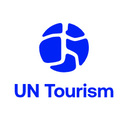UNWTO Secretary-General underlines the role of regions and cities in the development of tourism in Europe
In an official visit to Brussels, Belgium on 7 December, Secretary-General of the World Tourism Organization (UNWTO) Taleb Rifai emphasized the role that municipalities and regions play in the development of sustainable and competitive tourism in Europe.
Rifai was a special guest at the 120th Plenary Session of the Committee of the Regions of the European Union, where he addressed its 350 members on the occasion of the debate and adoption of the opinion on 'Tourism as a driving force for regional cooperation across the EU'. Meeting the rapporteur of the opinion, Hans-Peter Wagner, Mayor of Breitenwang (Austria), Rifai stressed the relevance of tourism at regional level in terms of socio-economic and cultural development, and the need to enhance regional cooperation.
"European cities, regions and municipalities are key pillars to foster sustainable and competitive tourism. This is the moment to lay the foundations for a new paradigm for the tourism sector; to embrace a sustainable, inclusive and responsible tourism sector that makes clear business sense, drives local development and builds a sense of common future in Europe," said Rifai in his intervention.
As part of his visit, the Secretary-General met a number of Members of the European Parliament. The bilateral discussions focused on how to further strengthen the ongoing cooperation between the two entities in light of the forthcoming International Year of Sustainable Tourism for Development in 2017 and European Year of Cultural Heritage in 2018.
In a meeting between Rifai and Claudia Tapardel, Co-Chair of the Intergroup on European Tourism Development, it was agreed that two major UNWTO/European Parliament events will be held in 2017, one of which in Romania on the digitalisation of the tourism sector and seasonality.
"This will be an ideal opportunity to discuss the concrete challenges of Romanian tourism, starting with the economic impact of seasonality and ending with professional training of employees in the field," said Tapardel.
"Romania has been advancing strongly in tourism development and I would encourage the incoming government to consider the creation of a dedicated tourism ministry to make the best use of Romania's opportunities in the sector. Romania would greatly benefit from a coordinated and centralized approach to tourism that further stresses the links between the sector and SMEs," Rifai added.
The European Capital of Tourism
The UNWTO Secretary-General also praised the 'European Capital of Tourism' initiative led by Istvan Ujhelyi, Vice-Chair of the Committee on Transport and Tourism and responsible for the Tourism Task Force Group of the European Parliament.
"UNWTO is very happy to support such an innovative initiative as it can help promote the richness of the tourism offer of European regions and cities while increasing citizens' pride in sharing local tourism-related values," said Rifai in a debate conducted with stakeholders of the European Tourism Manifesto and private sector representatives.
UNWTO Secretary-General also met Committee member Claudia Monteiro de Aguilar, who expressed her appreciation for the continuous support of UNWTO to the tourism sector in Portugal.
About UN Tourism
The World Tourism Organization (UN Tourism) is the United Nations agency responsible for the promotion of responsible, sustainable and universally accessible tourism.
As the leading international organization in the field of tourism, UN Tourism promotes tourism as a driver of economic growth, inclusive development and environmental sustainability and offers leadership and support to the sector in advancing knowledge and tourism policies worldwide.
Our Priorities
Mainstreaming tourism in the global agenda: Advocating the value of tourism as a driver of socio-economic growth and development, its inclusion as a priority in national and international policies and the need to create a level playing field for the sector to develop and prosper.
Promoting sustainable tourism development: Supporting sustainable tourism policies and practices: policies which make optimal use of environmental resources, respect the socio-cultural authenticity of host communities and provide socio-economic benefits for all.
Fostering knowledge, education and capacity building: Supporting countries to assess and address their needs in education and training, as well as providing networks for knowledge creation and exchange.
Improving tourism competitiveness: Improving UN Tourism Members' competitiveness through knowledge creation and exchange, human resources development and the promotion of excellence in areas such as policy planning, statistics and market trends, sustainable tourism development, marketing and promotion, product development and risk and crisis management.
Advancing tourism's contribution to poverty reduction and development: Maximizing the contribution of tourism to poverty reduction and achieving the SDGs by making tourism work as a tool for development and promoting the inclusion of tourism in the development agenda.
Building partnerships: Engaging with the private sector, regional and local tourism organizations, academia and research institutions, civil society and the UN system to build a more sustainable, responsible and competitive tourism sector.
Our Structure
Members: An intergovernmental organization, UN Tourism has 160 Member States, 6 Associate Members, 2 Observers and over 500 Affiliate Members.
Organs: The General Assembly is the supreme organ of the Organization. The Executive Council take all measures, in consultation with the Secretary-General, for the implementation of the decisions and recommendations of the General Assembly and reports to the Assembly.
Secretariat: UN Tourism headquarters are based in Madrid, Spain. The Secretariat is led by the Secretary-General and organized into departments covering issues such as sustainability, education, tourism trends and marketing, sustainable development, statistics and the Tourism Satellite Account (TSA), destination management, ethics and risk and crisis management. The Technical Cooperation and Silk Road Department carries out development projects in over 100 countries worldwide, while the Regional Departments for Africa, the Americas, Asia and the Pacific, Europe and the Middle East serve as the link between UN Tourism and its 160 Member States. The Affiliate Members Department represents UN Tourism's 500 plus Affiliate members.
Rut Gómez Sobrino
Principal Media Officer
(+34) 91 567 81 60
UN Tourism
